BUSINESS SETUP IN FREE ZONE, UAE
What Is a Free Zone Company in UAE?
Free Zones, also known as Free Trade Zones, were first created to encourage international trade. In addition to offering firms favorable rates and taxes, they also allow for 100% foreign ownership. As these regions extended throughout the United Arab Emirates, they each developed a distinct set of competitive advantages and started to specialize in specific industries and market niches. Among the many advantages of establishing a Free Zone company are its ease of use and potential costeffectiveness. But picking the appropriate zone is crucial for your business.
ALL YOU NEED TO KNOW ABOUT
Dubai Free Zones Company Formation
In essence, free zones and perhaps even free trade zones throughout Dubai are essentially business areas in Dubai where businesses operating there are exempt from all types of taxes, including as income tax, corporation tax, value added tax (VAT), and customs. In all of Dubai’s free zones, business owners fully own their enterprises.
All trade barriers are lifted if multiple countries agree to create a mutual free zone. There are no duties or taxes of any type to pay inside the Dubai free zone. Because there are fewer obstacles, companies of all stripes are more likely to explore opening new locations or moving to the Dubai Free Zone. The Dubai Airport Free Zone, Dubai Design District, Dubai Gold and Diamond Park, Dubai Healthcare City, Dubai International Academic City, and many more are among the more than forty free zones in Dubai.

Benefits of UAE Free Zones
100% foreign ownership
100% Tax exemption intended for corporate and personal income
100% Repatriation of capital & profits
No foreign exchange controls
Firms can run 24 hours, security around the clock.
No requirements for the minimum share capital
Personal presence is not required for company incorporation
Low cost of company setup and Quick Company Registration

Choose one of the UAE's High-Demand
Free zones For Your Company
In the United Arab Emirates, many Free Zone exist, all of which give investors trading, services and industrial permits. They provide significant business flexibility and variety of trading options. The cost of a free zone company setup varies depending on multiple criteria, including Free Zone selected, the type of license and specific needs of your company.
Below is the list of top Free Zones in the UAE where you will have the choice to setup your business and avail the advantages.
Types of Mainland licenses
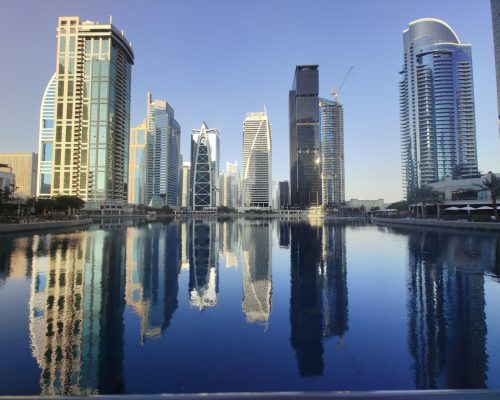
Dubai Multi Commodities Centre (DMCC)
Renowned for its world-class facilities, DMCC is ideal for businesses in commodities trading and related sectors.
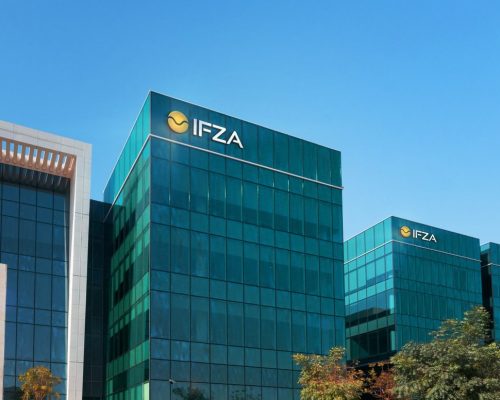
International Free Zone Authority (IFZA)
IFZA gives a business-friendly environment, access to world-class infrastructure, and a wide range of incentives and benefits.
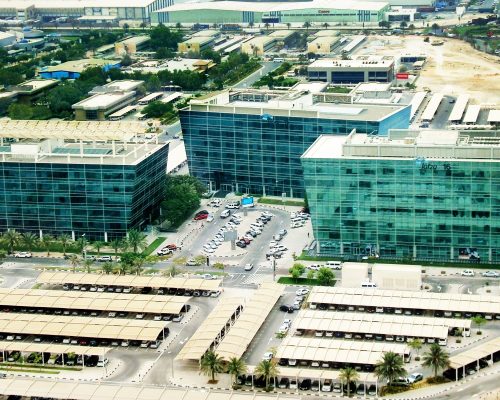
Jebel Ali Free Zone
(JAFZA)
Perfect for logistics and trade, JAFZA offers access to one of the world largest ports and a major trading hub.

Dubai Internet City
(DIC)
DIC is housed within a Free Zone that offers a knowledge economy ecosystem that supports the growth of information and communications technology (ICT) businesses.
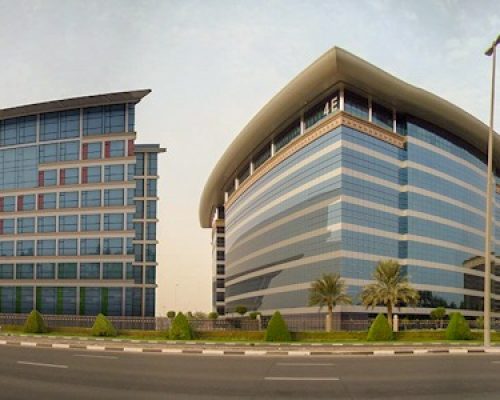
Dubai Airport Free Zone
(DAFZA)
Due to its advanced infrastructure, the Dubai Airport Free Zone can accommodate investors with a range of legal structures for company registration.

Dubai International Financial Center (DIFC)
The Dubai International Financial Centre (DIFC) is the city’s financial centre and it gives a platform for financial institutions to do business with the region’s growing markets.
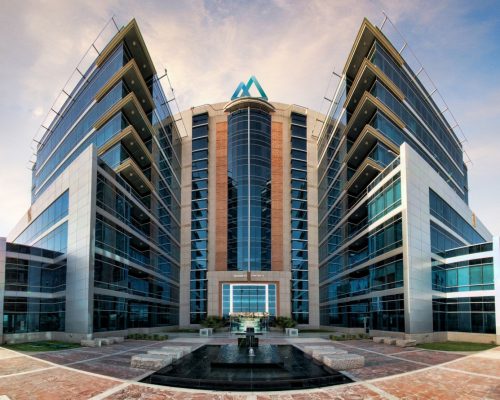
Ras Al Khaimah Economic Zone (RAKEZ)
Known for its cost-effectiveness, RAKEZ is
suitable for SMEs and startups across various sectors.
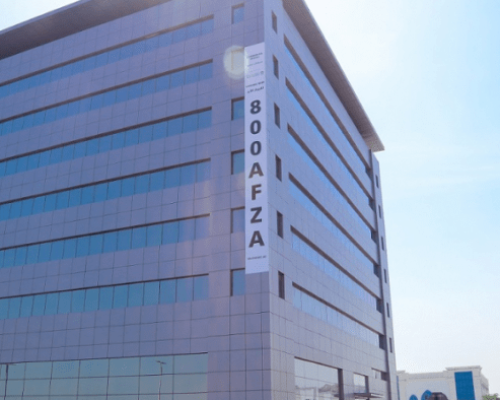
Ajman Free Zone
(AFZ)
One of the most established and reasonably priced free zones in the UAE is the Ajman Free Zone. It is thus without a doubt the greatest location to launch a business in the United Arab Emirates.
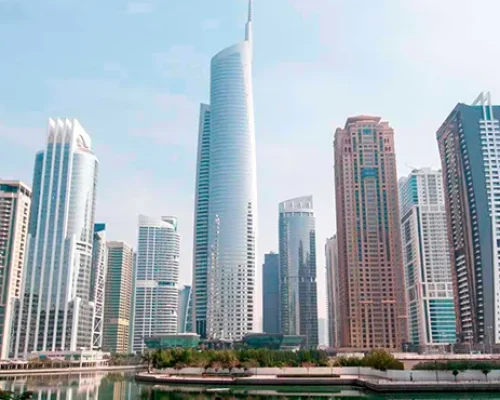
Sharjah Media City Free Zone (SHAMS)
Sharjah Media City (SHAMS) is a well-known and well operated free zone in Sharjah, UAE. It offers incredibly cheap company permits for a variety of commercial activities.
How to Register A UAE Free Zone Company?
To start a business in any Free Zone you need to complete three main steps: Obtain your license, get your UAE Residence Visa and open a corporate bank account. The entire business establishment process should take one to four weeks if it is well-planned. It is mandatory for any company that operates in a UAE Free Zone to obtain a business license, which is also called a trade license. Every business license has a one-year expiration date from the date of issuance and needs to be renewed every year.
Here is the step by step guide.
Each UAE Free Zone has its list of allowed activities that can be performed within the particular Free Zone; types of available facilities and visa quotas can also vary from one Free Zone to another. That’s why it is highly recommended to get a professional consultation at this stage to choose the best Free
Zone for your business.
Each Free Zone has different rules for the number of activities that can be added in one license. The main regulation for all Free Zones, however, is that no commercial activity may be combined with service activities under one license. Hence, anything pertaining to trading needs to be covered by a trading/commercial license, and anything involving the provision of services or consultations needs to be covered by a service license. You will need an industrial license if you intend to manufacture or produce anything.
A new company with an individual shareholder or shareholders, a subsidiary company with a corporate shareholder or owners, a joint venture company with a combination of individual and corporate shareholders, or a branch of a domestic or foreign company are examples of possible corporate structures. Certain business operations are restricted to Branch Companies exclusively, therefore you should confirm this with the free zone of your choice.
Prepare the list of documents necessary by the selected Free Zone and rank the possibilities for the company name (three suggested names are needed) according to preference. The typical list of paperwork for the establishment of a new company includes the following: proof of residential address, a professional CV, passport, visa, EID (if applicable), and NOC for UAE residents (for certain Free Zones). A comparatively distinct set of documentation is needed for the registration of Branch corporations.
File your application along with the required documents to the Free Zone authority.
Once the initial approval is obtained, signing of documents such as Articles of Association (AOA), Board Resolution, and Specimen Signature Form will be required.
Once approved, pay the registration, License and any other relevant fees.
You must identify a commercial property for your business inside the designated Free Zone in order to proceed to the last level of licensing. After deciding on a good option, you need to get the Ejari Certificate and sign a tenancy contract that will last at least a year. According to the information your license will be issued with the address from your tenancy contract, both must be given to the Free Zone. The type of facility (flexi-desk, physical office, business center office, warehouse, retail space) will determine which extra documentation are needed.
Once the registration documents are signed, all approvals are obtained, and all payments are made. The license will be issued along with other corporate documents.
Step 1
Step 2
Step 3
Step 4
Step 5
Step 6
Step 7
Step 8
Once approved, pay the registration, License and any other relevant fees.
Book A Free Consultation
Consult right now with our experienced team for complete solutions to your business
requirements.
Frequently Asked Questions
A Free zone company is a business entity established in specific zones in the UAE that offers various benefits and incentives to foreign investors.
Yes, by following the below steps.
- Identify the legal entity type.
- Pick a business name.
- Get a business licence by applying.
- Select a workspace.
Obtain preliminary approvals, register your company, and obtain a license.
